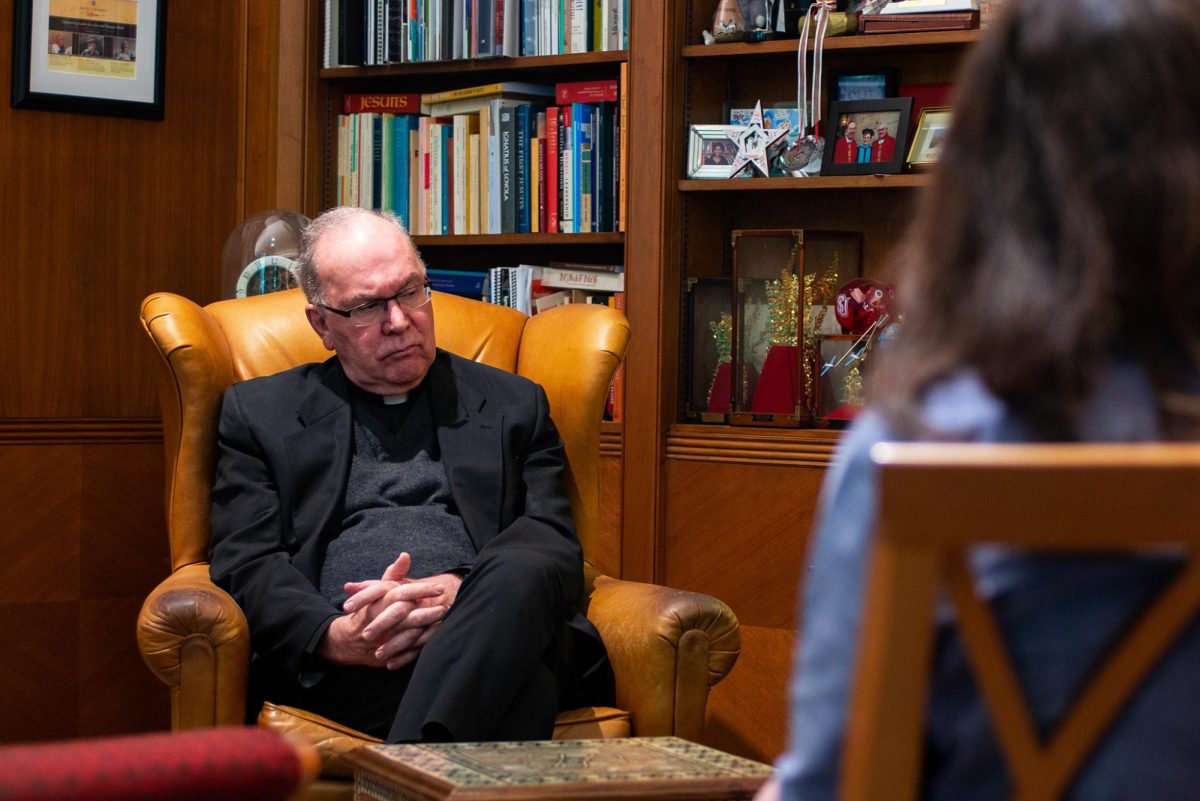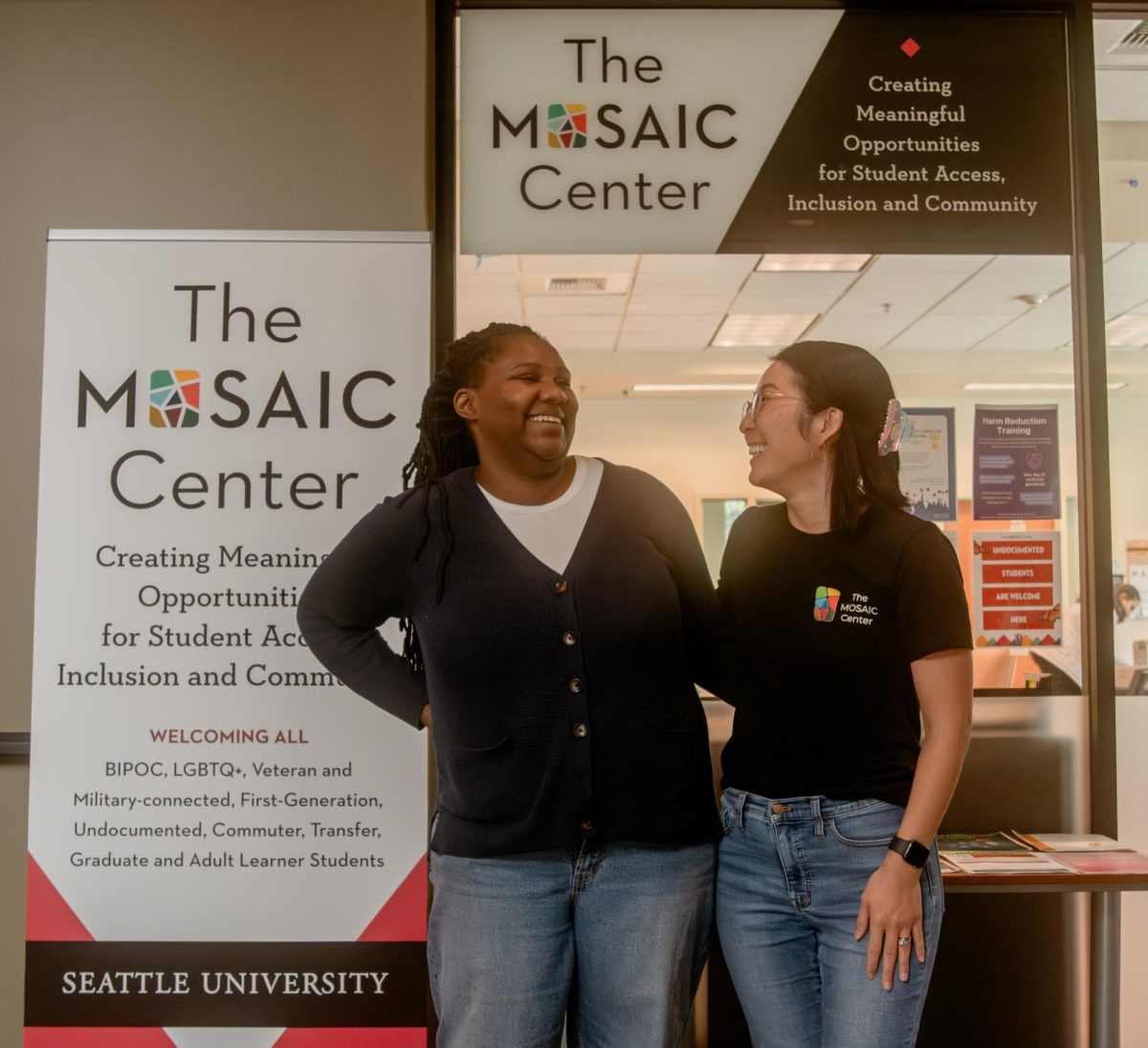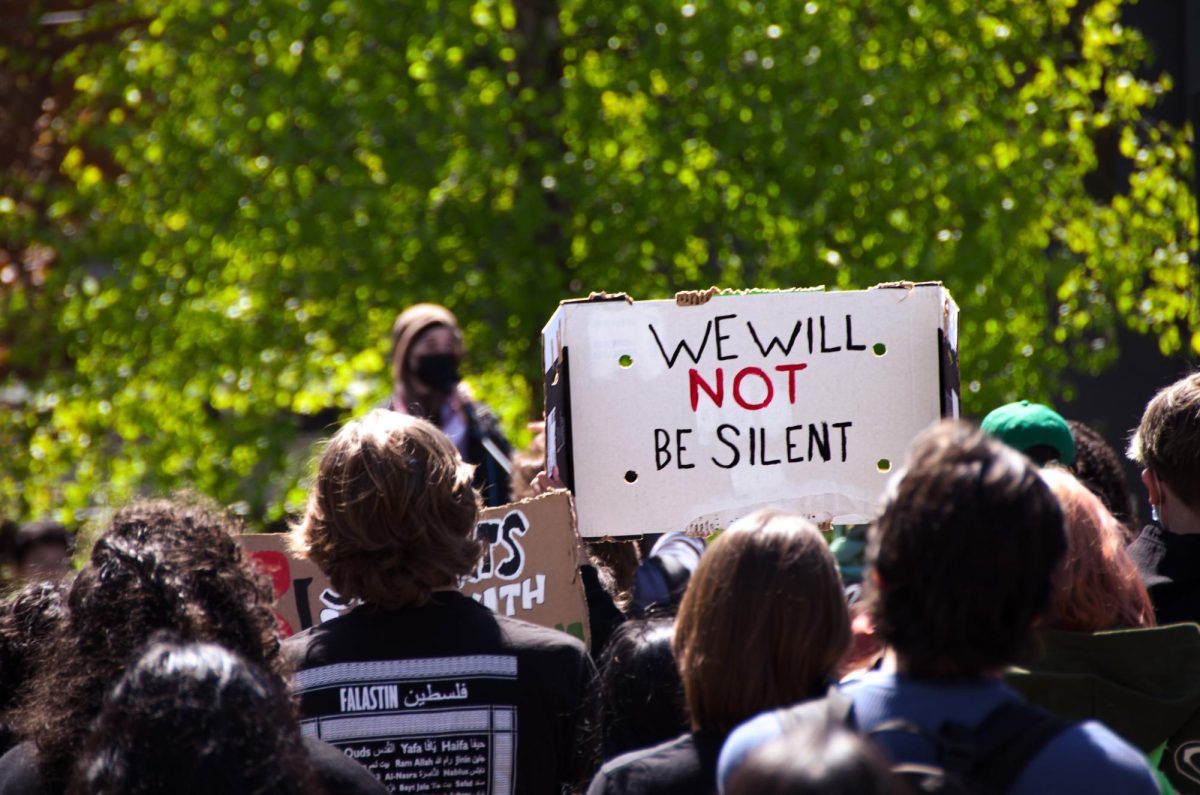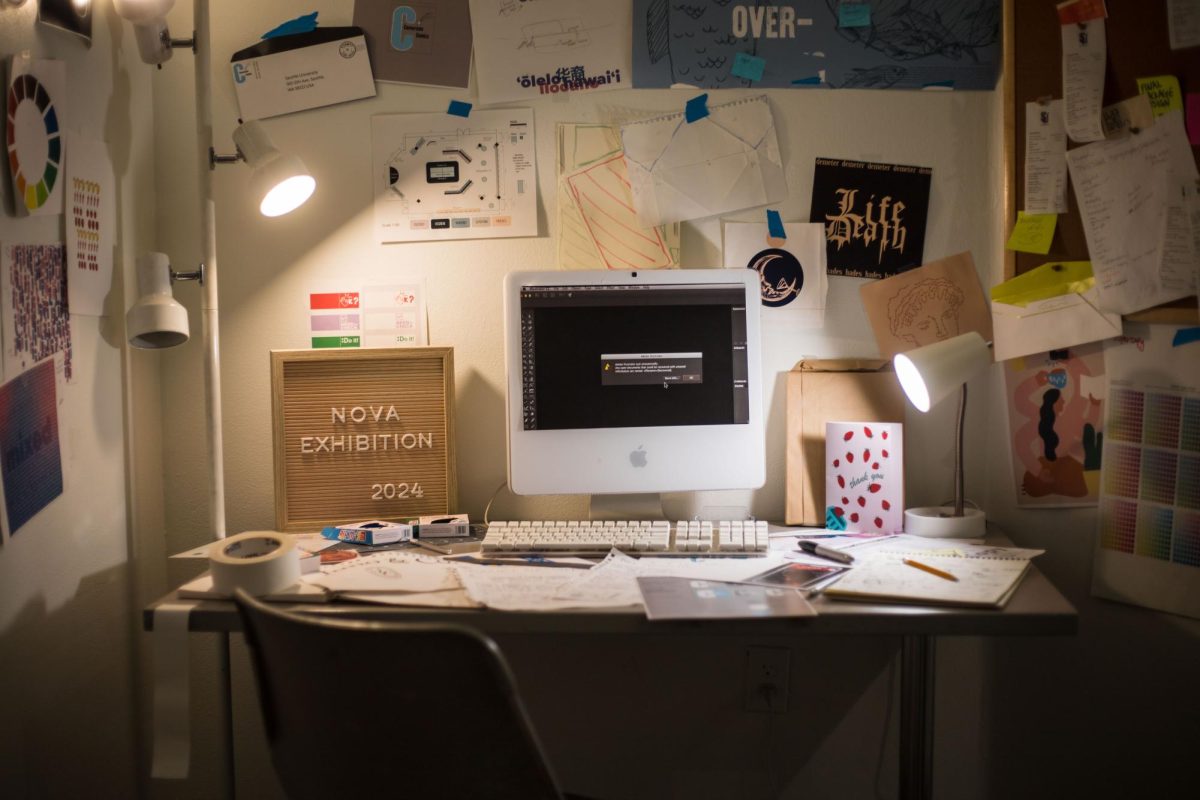Higher education is riddled with challenges for students with disabilities. At Seattle U, our disabilities services put a lot of energy and effort into making this campus a good learning environment for those students. Yet, there are still many unanswered questions regarding how well-adapted our campus is for students with disabilities.
Molly McCabe is the president of the Seattle U Best Buddies club, which aims to form friendships between students and people with developmental disabilities. McCabe spoke about her frustrations with the lack of awareness on campus about Seattle U’s disabled population.
“The visibility is just really low for [intellectually and developmentally disabled] students [at Seattle University]. It’s not talked about on our campus, it’s not an issue that most people even think about or know about,” McCabe said. “We [at Best Buddies] don’t separate people with disabilities into being this other entity.”
McCabe’s comment speaks to a larger societal issue of the separations that can be created in spaces between the typically functioning and the intellectually disabled. The education system is one of the most difficult boundaries to draw in our society when it comes to inclusion and separation based on ability.
Many of these educational obstacles begin for these students far before college. McCabe spoke to the difficulty disabled students face when trying to get integrated into classes with typically functioning students in high school, a process known as “mainstreaming.” Most people with disabilities are put into a separate, single class for their entire education, even for activities including art classes and physical education.
“I know my buddy, Devon, her parents had to fight tooth and nail to get her mainstreamed,” McCabe said. “Devon’s not stupid. She can learn. She’s brilliant. She works at a stem cell research lab. Her job is higher paying than mine. But she was getting an education that wasn’t right for her and they wouldn’t listen because all they saw was a diagnosis.”
The post-high school outcomes for people with intellectual and developmental disabilities, which is usually after age 21, is a muddled question. Special education programs don’t really exist beyond high school. From then on, help for these students comes in the form of accommodations.
Kim Thompson, Senior Director of Disability Services at Seattle U, spoke of her experience with how Seattle U helps disabled students.
“Seattle U is an amazing university in terms of accommodating students with disabilities. In the state system, you’re driven only by the law…you end up getting driven by the minimums. But at Seattle U, we’re driven by the mission…we really do look at the whole student to professional formation and to creating leaders,” Thompson said. “Students with disabilities who are admitted really are accommodated well here. It was one of the reasons I decided to come here was that I would have the opportunity to really fully help remove barriers for students with disabilities in a world that is otherwise ableist.”
Thompson listed some of the case-by-case accommodations that Seattle U provides for students with disabilities: interpreters, braille, screen enlargers, extra time in a quiet room and notetaking. In addition, Seattle U has electronic note-taking resources such as Sonocent and Livescribe pens. Another is a pen the instructor uses that records and sends the lecture through a captioning company and comes into the student’s phone.
Ivanova Smith, a prominent advocate for disabled rights, spoke about her experience receiving accommodations at Pierce Community College.
“I used extra time for tests and a smartpen to take notes… and audiobooks. I also was able to get mental health support which helped me get through my more stressful classes,” Smith said.
Angela Hughes, Program Specialist of Services for Students with Disabilities at Shoreline, discussed potential problems disabled students face in universities. She said that due to the reduced course load of these students, they are considered part-time students. That complicates financial aid opportunities, medical plans and enrollment opportunities. Hughes said that since quarters are “fixed systems,” these students don’t always have enough time to absorb all of the concepts and when they get bad grades, they are “penalized with marks like ‘incomplete’ on their transcripts.”
Thompson further explained that if those students cannot qualify for degree programs, that means they cannot qualify for financial aid, which often makes it harder for them if they’re trying to go to college.
“It’s too reductive to say that the university would simply need to add more money in a different direction… If the university were to lend its voice to efforts to get higher ed to be more inclusive in general, they could do that,” Thompson said, emphasizing how complex and multi-dimensional this problem is.
Another aspect of this discussion is whether or not there should be space on our campus, or on any others for that matter, for students with more severe disabilities.
Section 504 is an anti-discrimination law that prohibits those with disabilities to be excluded from any federally funded program solely due to their disability. It states clearly that the individuals must be “otherwise qualified” in order to be protected by this law.
The detail of the words “otherwise qualified” is very significant when differentiating between universities and community colleges in their acceptance of all students. Thompson spoke to the demanding nature of Seattle U and how that affects who is admitted.
“Remember, at this point, not every non-disabled person can come in the door here. Because we are a highly selective institution,” Thompson said. “We’re applying that admission standard equally to everyone, which is by definition non-discriminatory… We don’t categorically deny admission to anyone.”
Seattle U does not ask students if they have a disability when they apply to the school so as to avoid the possibility of discrimination based on disability.
“If you meet that admissions bar with or without an accommodation, then we will accommodate you,” Thompson said. “We are not riding on ‘undue burden’ to block anyone from admission. ”
“Undue burden” refers to a clause within Section 504 that reads: “Section 504 and the ADA do not require the University to make academic adjustments or program modifications that are essential to the program of instruction or that fundamentally alter the nature of the program, goods, or services, or that create an undue burden for the University.”
Thompson questioned whether admitting students with severe intellectual disabilities made sense in a university setting.
“We don’t offer anything, probably, that somebody with a significant intellectual disability could really benefit from. So, what would be the point of that?” Thompson said.
Thompson emphasized that creating a parallel program, with a different set of teachers and courses, would be the only way to accommodate those students and a shift like that would require uprooting the norms in higher education in many ways such as federal financial aid rules, legal rules, accreditation rules and individual college admission rules.
“There are a lot of forces that play into how we would think about having a parallel track, which is what it would be,” Thompson said. “I don’t know if it has a place here, I don’t know that it doesn’t. It would require changing the structure in multiple places… You’d have to change all of higher ed. I’m not saying that would be a bad thing, I’m just saying it hasn’t happened yet.”
Thompson as on a state task force in 2013 that focused on brainstorming how to improve transitions and post-high school outcomes for students with disabilities. https://www.mastersdegree.net/students-with-disabilities/
“Because of the number of places that you would have to push, our recommendation was to increase the number of programs like Shoreline and Highline and Bellevue,” Thompson said.
Those three names refer to the three community colleges in the state of Washington that have programs in place for continued education post-high school for disabled students. Thompson worked at Shoreline for over 20 years, creating the Community Integration and Employment Program (CIEP) which teaches life skills and develops a pathway towards independence for disabled students after high school. They take classes on the Shoreline college campus and finish their diploma while also preparing for jobs. Life skills-oriented programs are the most common format for educational programs for these students, as opposed to continued academic learning.
Michael Graham, one of the intellectually disabled community members in the SU Best Buddies club, spoke about his current educational experience.
“I am enrolled in a program through the Lake Washington School District called the Transition Academy… It’s an after high school program that teaches kids with disabilities how to get around and survive in the real world,” Graham said. “ There is no reading, writing or arithmetic except for reading bus schedules, writing down schedules and figuring out how much money you need to buy something at the grocery store.”
“Everyone here is here to do college-level work,” Hughes said, referring to community college. “At this school, everybody gets a chance. We don’t turn people away.”
This “open door policy” of community colleges is why Thompson believes the best solution for educating students with severe disabilities is most likely in those spaces instead of universities.
“It isn’t why universities were intended. It is actually some of what community colleges were intended for because they’re open-door institutions,” Thompson said. “They have adult basic education classes.”
Hughes supported this concept by speaking to the fact that universities cannot remove standards from their curriculum.
“A degree means you’ve achieved a certain set of steps—it’s the same for everybody. We can change the method or platform but they’re ultimately responsible for knowing,” Hughes said.
However, she had ideas for how universities could improve for the disabled students that do meet the academic standards, which could happen through inclusive design. Hughes discussed inclusivity on the website is present, having things such as reader view for people who are distracted by images.
“Professors could plan classes so that people with disabilities, or even those just going through hardships, could still allow students opportunities to recover,” Hughes said, suggesting makeup test days, dropping the lowest quiz scores and overall flexibility in the curriculum.
Smith spoke to this concept of inclusivity in curriculum through having an increase in audiobooks and more flexibility in how professors create assignments.
“Knowledge does not only need to come from paper. There are other ways people can acknowledge things they learn without having to read and write. I feel we can teach using different methods that allow more perspectives and expressions of knowledge,” Smith said. “That my passion for all people with intellectual and developmental disabilities to have a chance to attend university!”
Hughes discussed how the goal of education for the disabled in community colleges is independence.
“It’s not about making a disability go away, it’s about learning coping mechanisms and strategies and tools for adulthood in order to be independent,” she said.
Sarah may be reached at
[email protected]











